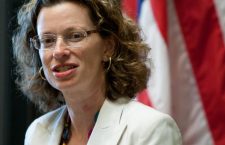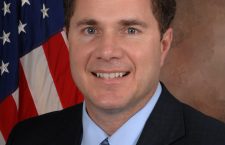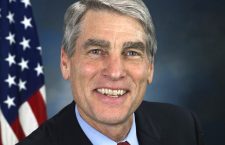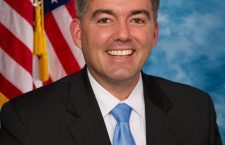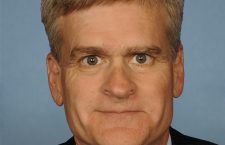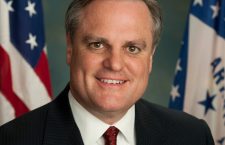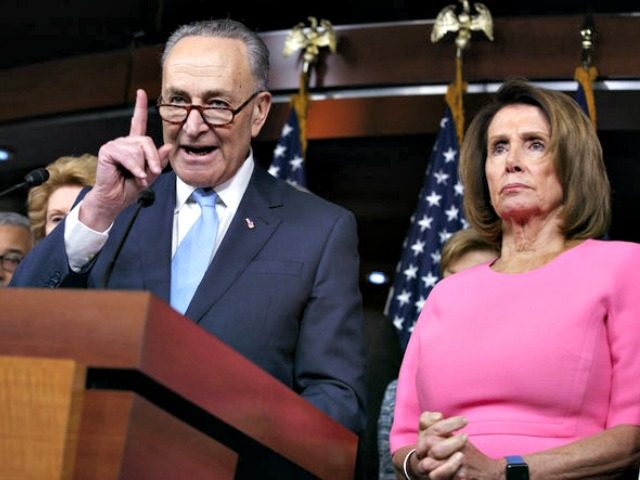By: GPR Editorial Board
Fall 2014 marks the onset of midterm elections, and the U.S. Senate is in for some major reshuffling. Here is the GPR guide to some elections that are worth watching: They’re contentious, they’re big, and they’ll have an impact on the Senate for the next six years.
Georgia:
Michelle Nunn (Democrat)
The daughter of former Sen. Sam Nunn touts her bi-partisan qualifications as the former CEO of President George H.W. Bush’s charity, Points of Light. Nunn has attempted to strike a balance between supporting key policies of the Obama administration and embracing the views of everyday Georgians. As a consequence, Nunn supports the Affordable Care act, the DREAM act and raising the minimum wage, but is opposed to raising corporate taxes and believes the issue of gay marriage should be decided on a state-by-state basis.
David Perdue (Republican)
David Perdue, a seasoned veteran of corporate America and cousin of former Gov. Sonny Perdue, is the Republican candidate in Georgia’s Senate race. Perdue’s campaign has focused on channeling his private sector experience to reform the U.S. economy. Perdue has supported a partial privatization of Social Security and the full repeal of the Affordable Care Act to address the nation’s fiscal woes. On social issues, Purdue opposes gay marriage and abortion but is in favor of medical marijuana.
Kansas:
Pat Roberts (Republican, Incumbent)
Pat Roberts is the senior U.S. Senator from Kansas who is running for a fourth term. Heritage Action, the policy advocacy arm of the Heritage Foundation, ranks him as one of the Senate’s five most conservative senators, and he has an A rating with the National Rifle Association and a 100% rating with National Right to Life, which opposes abortion. He strongly opposes the Affordable Care Act and is proud that he was the first to call for Obama to fire the previous Secretary of Health and Human Services, Kathleen Sebelius. He supports cutting government spending and a constitutional amendment to define marriage as between one man and one woman.
Greg Orman (Independent, Challenger)
Greg Orman is an independent and surprising frontrunner in the Kansas race. This is his first bid for political office after a lifetime in business, including founding two companies. He supports reducing partisan brinksmanship, simplifying the tax code, reforming federal loans for higher education, and increasing the number of visas for high-skill immigrants, all with the goal of creating more jobs. He criticizes the false dichotomies of the Democrats and Republicans, including those on healthcare and the environment, and he supports changing incentives to “bend the cost curves” of health care costs and finding business-friendly environmental solutions. Economic issues dominate social issues in his platform, but he supports women’s right to choose abortion and expanded background checks for gun purchases.
Iowa:
Bruce Braley (Democrat)
After three terms as a congressman, Braley has run on his tenure as an effective government servant. He hopes to increase the federal minimum wage to $10.10 in order to inequality. As a method of distancing himself from the president, he has made clear he wishes to reform Obamacare, but not repeal it. Braley is also strong in favor of responsibly fighting against climate change, an issue he lists as deeply important to the future. He has passed legislation for tax credits for families with children in college, and also keeping student loan interest low.
Joni Ernst (Republican)
Having served in the Iowa Senate and the Iowa Army National Guard, Ernst has led an aggressive campaign to replace Democratic Sen. Tom Harkin, who is retiring after this term. Ernst believes in hard-line fiscal responsibility and wants to push for a balanced-budget amendment. She also wants to “flatten” the tax structure, making for a less progressive taxation system. The repeal of the Affordable Care Act is listed as one of her foremost goals if she is elected. She has gained strong endorsements within the Republican establishment, such as former Secretary of State Condoleezza Rice.
Alaska:
Mark Begich (Democrat, Incumbent)
Mark Begich, former Anchorage mayor and senator since 2008, prides himself on being able to work across party lines in Congress. Belgich supports a balanced budget amendment and stimulating the Alaskan economy by heavily investing in infrastructure and developing natural gas and oil industries to keep Alaska as “America’s energy storehouse.” As a member of the Senate Committee on Veterans’ Affairs, Begich introduced the Alaska Heroes Card to allow Alaska veterans to receive health care in their own community.
Dan Sullivan (Republican, Challenger)
Sullivan, former Alaska attorney general and natural resources commissioner, is the challenger in the Alaska Senate race. Sullivan’s platform focuses on using Alaska’s resources to promote the state’s future, stopping Obamacare, and bettering lives of military veterans in Alaska. He also seeks to expand infrastructure in rural Alaska and increase cooperation and decrease sexual assault between Native Alaskan tribes.
North Carolina:
Kay Hagan (Democrat, Incumbent)
During the 2008 senatorial election, incumbent Kay Hagan benefitted from high voter turnout among youth and minorities. Since then, although North Carolina went red in the last presidential election, Hagan has generally voted along party lines. She supports education reform to hire more teachers and decrease class sizes. On social issues, she advocates for women’s abortion rights and has enforced bans on discrimination based on sexual orientation, but she believes that the issue of same-sex marriage should be decided on a state-by-state basis. Hagan supports the Affordable Care Act and the Keystone Pipeline XL Most recently, Hagan has voiced approval of President Obama’s airstrike strategy to eliminate the threat of ISIL.
Thom Tillis (Republican, Challenger)
The Speaker of the House in North Carolina’s General Assembly, Thom Tillis’ biggest obstacle in this race is overcoming the low approval rating of the state legislature. As a senator, Tillis intends to push for the repeal of the Affordable Care Act, as well as decreased government spending to maintain a balanced budget. He is a supporter of charter schools as a means of education reform, but he opposes same-sex marriage, as well as abortion, and will work to enforce bans on both.
Colorado:
Mark Udall (Democrat, Incumbent)
Mark Udall is the incumbent senator for Colorado. He is known for an independent, Western-minded approach to politics, working with anyone regardless of political affiliation. He has fought to grow jobs across aerospace, bioscience, clean energy, defense, and high-tech sectors for Coloradans. Going against the grain of his party, Udall advocates for responsibly reducing the nation’s debt and getting the U.S. fiscal house in order. He hopes to move the U.S. economy toward a renewable energy economy. Udall champions equal pay for women, ensuring women’s choice in their personal health decisions, comprehensive immigration reform, and the DREAM Act.
Cory Gardner (Republican, Challenger)
Cory Gardner is a former Congressman representing Colorado’s 4th Congressional District and a rising star in Colorado’s Republican party. Gardner is an advocate for limited government and lower taxes. He also supports the Keystone XL pipeline. While in Congress, he introduced legislation to help small businesses grow and families save for college. He is also known for fighting government regulations that hurt farmers and hinder job growth.
Kentucky:
Mitch McConnell (Republican, Incumbent)
McConnell’s status in the Republic Party makes the Kentucky elections a race to watch. McConnell is current Senate minority leader, and one of the most senior members of the U.S. Senate. McConnell’s major challenge in this election is his unpopularity in Kentucky. If Grimes is able to attract Kentucky’s coal-mining Democrats, McConnell’s re-election is going to be an uphill battle. Although opposed to Obamacare, McConnell is in favor of keeping Kentucky’s highly successful healthcare exchange Kynect. McConnell is opposed to gay marriage, and is in favor of the Keystone Pipeline. He has consistently voted against the Violence Against Women Act, although McConnell is making a larger push to Kentucky’s women voters this election season.
Alison Lundergan Grimes (Democrat, Challenger)
Currently Kentucky’s secretary of state, Alison Lundergan Grimes is giving Mitch McConnell a run for his money. Recently endorsed by the two largest newspapers in Kentucky, Grimes has politics in her blood: Her father was Kentucky’s Democratic chairman and a state representative. Grimes is notably fighting for the title of Kentucky’s first female senator, and lists women’s and family issues as a primary focus. Grimes is in favor of increasing Kentucky’s coal exports, and wants to give college students “the same loan rate as Wall Street banks.” She supports providing greater resources for veterans, and is a proponent of targeted attention to combat Kentucky’s growing drug abuse problem.
Louisiana:
Mary Landrieu (Democrat, Incumbent)
Mary Landrieu is the incumbent, first elected to Senate in 1996. Landrieu a strong track record of dealing with crises. She secured billions in funding for Louisiana in the wake of Katrina, and she played a major role in passing the RESTORE Act, which redirected BP fines back toward the coastal states affected by the oil spill. She has also secured Louisiana a huge share of the offshore energy production revenues. Landrieu is a huge proponent of senior benefits like Social Security and Medicare.
Bill Cassidy (Republican, Challenger)
Bill Cassidy is a practicing doctor who represents Louisiana in the House. He opposes Obama’s Affordable Care Act and has proposed alternatives that would protect the patient as well the average taxpayer. He is a member of the NRA, an opponent of abortion, and a supporter of lower taxes. Cassidy has also proposed legislation in favor of fracking and the Keystone XL pipeline.
New Hampshire:
Jeanne Shaheen (Democrat, Incumbent)
Shaheen is an incumbent last elected in 2008, when the former governor who took the seat of a prominent Republican. She has served on Committee on Energy and Natural Resources, Committee on Foreign Relations. Shaheen wants to end war in Iraq, focus on al-Qaeda, and “restore accountability”. To create jobs, Shaheen said she will end tax breaks for companies that send jobs overseas, invest in emerging industries, base policy decisions based on science and not ideology, increase federal research funding, and end subsidies for special interest companies like the oil industry. She also plans to promote and support equal rights, stem cell research, and comprehensive sexual education.
Scott Brown (Republican, Challenger)
Beloved by Wall Street, Brown is in favor of less financial regulation and cutting spending to keep the tax burden low. Brown says he’s a moderate pro-choice Republican, but he usually votes pro-life. Brown also scored a decisive victory in 2010 in the Massachusetts Senate race on a platform against the Democrat’s health plan.
Arkansas:
Mark Pryor (Democrat, Incumbent)
Senator Mark Pryor (Democrat, Incumbent)- Two-term Senator Mark Pryor is the last of a breed at the moment, Democratic senators serving in a Deep South state. Pryor won his last re-election contest in 2008 with 80 percent of the vote, but he didn’t face a Republican opponent in this race. Pryor is a blue-dog Democrat who has voted against raising the minimum wage, background checks for firearm purchases, and is an outspoken Evangelical Christian.
Tom Cotton (Republican, Challenger)
Tom Cotton, a Harvard graduate, former McKinsey consultant, and former member of the U.S. Army has an all-American resume, but the first term congressman lacks in political experience. Cotton is a staunch conservative all around when it comes to both economic and social issues, and his campaign has used shifting political tides in his state to further weaken his Democratic opponent in Mark Pryor.
